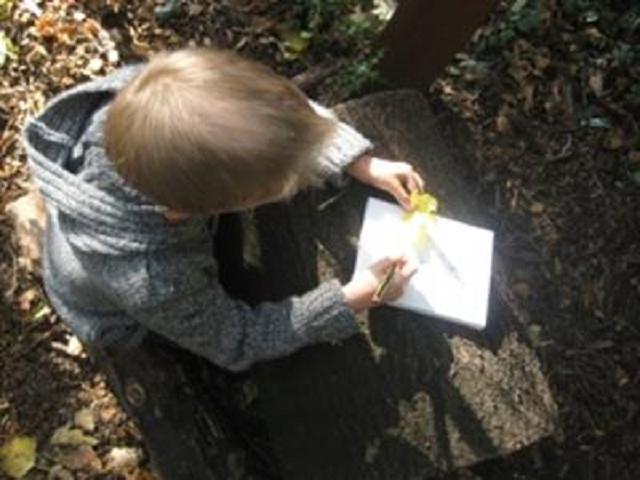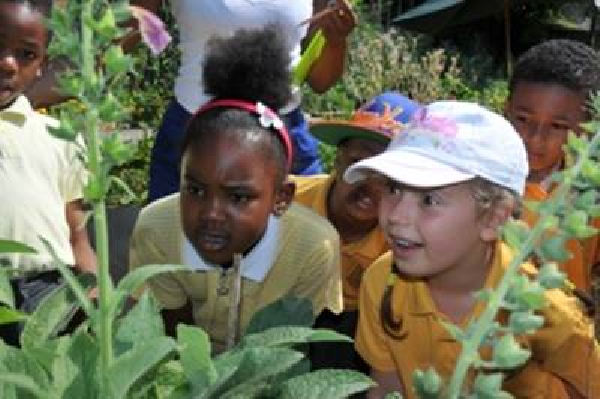
Earlier this month, we caught up with Marnie Rose, CEO of The Garden Classroom, to find out more about their work and how they help educate young people about the natural environment and the importance of getting outside. Check out our interview below.
Our Interview with The Garden Classroom
1. What is the overall aim of the work that you do with young people?
The Garden Classroom delivers high-quality outdoor education and recreation in natural environments to inner-city people, focusing mainly on children, young people and families.
2. You’ve recently become a charity. How has that changed things for you at The Garden Classroom?
Since becoming a charity, funding opportunities have risen for us as an organisation. The charity status also affirms what we do – that our service is essentially charitable and essential to health and wellbeing.
3. How important do you feel it is to educate young people about the outdoors and environment?
I think it is absolutely crucial and vital that children and young people from cities and rural areas learn in natural environments regularly.
The recent Natural Connections report, which highlights the successes of a 4-year programme of outdoor learning in natural environments (LINE), is very poignant and we are keen to see the soon-to-be-published government white paper, which will set out recommendations based on the findings.
TGC is ready to support NE London schools to increase their LINE provision and experiences for inner-city children and young people.
4. What have you found to be the best way to encourage children and young people to get outdoors and be creative during your workshops?
To access all children via schools – otherwise, the 'green welly brigade' will turn up. We support schools by providing risk assessments, discussing learning outcomes, offering CPD training in their local green space and delivering sessions ourselves, usually with a performance based facilitator who is passionate about the natural world.
5. There is obviously a lack of space - garden space and general outdoor space - for children in London and other cities. It’s hard for children and young people to explore and even play outdoors. How do you think parents and schools should respond to this in order to get children and young people outdoors and learning again?
I think there should be more support for organisations, such as ours, to support schools locally, on the ground and for us to provide holiday activities also.

6. What initially planted the seed for you to start The Garden Classroom?
I was a Founder Volunteer, Vice Chair and Trustee of King Henry’s Walk Garden, a local community garden which has since won many awards, including London’s best community garden (3 times).
During my volunteering time, planning, fundraising and setting up the site, I realised from my own children how little opportunity they had to spend outside in a natural environment. So I approached a local school to see if we could help them and entered a social enterprise competition, organised by Islington Council, presenting my idea for ‘The Garden Classroom’.
I was one of the winners of the funding competition and, in 2008, TGC was born.
We initially worked with one school and King Henry’s Walk Garden, and last year we worked with 32 schools and 11 sites, including 2 in Kent.
7. What lifestyle values and added benefits are provided by The Garden Classroom?
We know from tonnes of research published that children and people are happier when they spend more time outside in natural environments.
By accessing the younger generation through the school ‘shop window’, we are able to reach all children, whatever their background or income. I would say that, by offering this service, we are able to show children the important role that regular access to the natural world brings and to spark an interest in them that would otherwise go out, if not fuelled.
As Sir David Attenborough, in his interview with Barack Obama, said last year, we know that children are born with an innate interest in nature, looking at worms and snails close up, naturally fascinated… but that by the age of around 8, particularly if they live in cities, the interest dies.
I suppose he is saying that, as humans, we morph and change Darwinian style into our new concrete and built up environment, and that without a regular engagement opportunity with nature, we will become different people and our health and wellbeing will be affected as a result.
8. Have you got any exciting events or projects coming up soon that we can give a shout out to?
Ooh yes, we have many planned for 2017 and this is only November! Firstly, we are about to decorate our ex-park ranger hut office on Newington Green, in Islington, as a grotto and we will have a green Santa, elves, sleigh and music on 7th December. We are using this event to ask local families to make a nature connection pledge for 2017, which we will display.
Over the weekend of 6th and 7th May, we are delivering and hosting Islington’s first nature festival… the Mildmay Nature Festival, funded by the Big Lottery. Watch our website for more details.
Next year, we are planning a programme of camping and day-long visits to the Kent countryside, for Yr. 5 and 6 primary school children, looking at trees and hops… and simply going on a country walk!
Our Green Steps walking programme happens over 3 Sundays in May, June and July. It is a series of guided walks appreciating Islington’s green spaces.
Our schools programme is being updated to be in line with the new national curriculum, so we have an exciting offer of LINE experiences for schools next year. And we are hosting a LINE teachers event in Islington in March… there is much more, but not much time… so watch this space!
9. How can people get involved with TGC?
We are always looking for volunteers. People who are willing to volunteer a minimum of 15 x half-days to support our education sessions in parks, gardens and green spaces.
We provide full induction, and volunteers must have a full, recent DBS check and go through our child protection and safeguarding process.
We are now also looking to recruit young people, aged 18-21, to be paid outdoor assistants, helping our team on the ground. Anyone doing their Duke of Edinburgh Gold can apply by emailing [email protected].
The Garden Classroom really are doing some great work. If you represent a forward-thinking school and would like to create your own garden classroom, why not explore Shedstore's fantastic range of gazebos, which are all perfect for outdoor learning.




